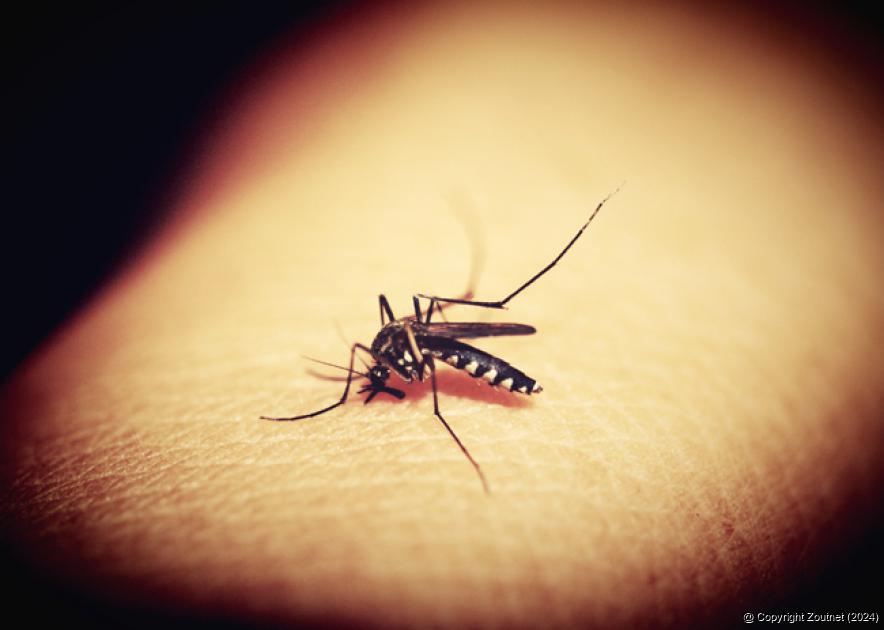The following article appeared on the Facebook page of the Genealogical Society of South Africa (eGGSA). Permission was granted for it to be used in the Zoutpansberger:
THE TINY BLOOD SUCKERS THAT CHANGED WORLD HISTORY
What do Dante, Oliver Cromwell, and Lord Byron have in common? They all died from malaria. Wednesday (25 April) was World Malaria Day, and researching this topic yields interesting information on the role of malaria in world history. In a South African context, the death of pioneers such as Louis Tregardt and other members of his trek in Maputo is well known.
On the eGGSA website, there is this transcription from “South Africa – A Weekly Journal,” 1900; 4 October - December (3 November 1900): Death of Prince Christian Victor -
“The Queen had this afternoon the grief of receiving from Lord Roberts the intelligence that her beloved grandson Prince Christian Victor of Schleswig-Holstein had succumbed to the attack of malarial and enteric fever from which he had been suffering since the 10th of this month....” (3).
However, it seems malaria also played a significant role in battles from as early as 323BC when Alexander the Great died from this disease, possibly preventing him from uniting Greeks and Asians into a single nation. During the American Revolution, it is reported that garrisons of British soldiers succumbed to malaria (5). These are but a few examples of the impact of this disease, and it may benefit family historians to take note when tracing death notices of ancestors.
After quinine was discovered in the seventeenth century, it became a travel accessory for anyone wanting to travel to lands affected by the disease. In particular, the use of quinine was essential to colonisers of Africa, Asia, and the Far East. According to an article in Science Museum, “In India alone, the British government was using nine tons of quinine annually by 1850,” and in essence, “Quinine became a tool of 19th-century colonialism. It allowed troops to cross malarial lands and without it the penetration of much of Africa would have been extremely difficult” (6).
Campaigns to bring awareness took on various forms. In 1943, even Disney enlisted the seven dwarfs from Snow White fame to educate people about malaria with the production of a short film, “The Winged Scourge.” (4).
You can watch the video here: https://www.youtube.com/watch?v=y68F8YwLWdg
For South African researchers, a useful resource is the South African Medical Journal Vol. 103 No. 10 (2013), where the writer gives a brief history of malaria and the various pioneers of medicine who developed programmes to eradicate the disease. Dates of documented malaria outbreaks include:
-1830s: immigrants to Natal were said to have suffered loss from “malaria and other fevers.”
-1904–1905: another report of malaria in Natal, with more than 4000 cases reported in Durban.
-1909: flooding in the Gordonia area caused an epidemic that stretched into the Kalahari.
-1918: another smaller outbreak in Durban
-1923–1933: further outbreaks in Natal, which affected areas up to Port St. Johns (2).
One cannot, of course, forget the concentration camps during the Second Boer War. Multiple deaths from malaria are mentioned in areas such as Pietersburg, Mafeking and Middleburg (1).
To conclude this brief post, here is a poem written by the British Medical doctor who received a Nobel Prize in 1902 for his work on malaria: Sir Ronald Ross (1857–1932), who was also a writer, poet and artist (5).
In this, O Nature, yield I pray to me.
I pace and pace, and think and think, and take
The fever'd hands, and note down all I see,
That some distant light may haply break.
The painful faces ask, can we not cure?
We answer, No, not yet; we seek the laws.
O God, revel thro' all this thing obscure
The unseen, small, but million-murdering cause.
Ronald Ross (1895).
--------------------------------------------------------------------------
Sources:
1) British Concentration Camps of the South African War 1900–1902.https://www2.lib.uct.ac.za/mss/bccd/
2) Coetzee, M., Kruger, P., Hunt, R., Durrheim, D., Urbach, J., & Hansford, C. (2013). Malaria in South Africa: 110 years of learning to control the disease. South African Medical Journal, 103(10), 770-778. doi:10.7196/SAMJ.7446 (http://www.samj.org.za/index.php/samj/article/view/7446/5460)
3) eGGSA Library. “South Aafrica – A Weekly Journal. http://www.eggsa.org/…/south-afri…/574-south-africa-1900-4-o.
4) Johns, Olivia. Marketing Away the Winged Scourge. Archive Global.http://archiveglobal.org/marketing-away-winged-scourge/
5) Kakkilaya, B.S. 2016. Malaria in Wars and in Victims.https://www.malariasite.com/wars-victims/
6) Malaria: the persistence of Disease. Science Museum Brought to Life.http://broughttolife.sciencemuseum.org.uk/…/diseases/malaria








